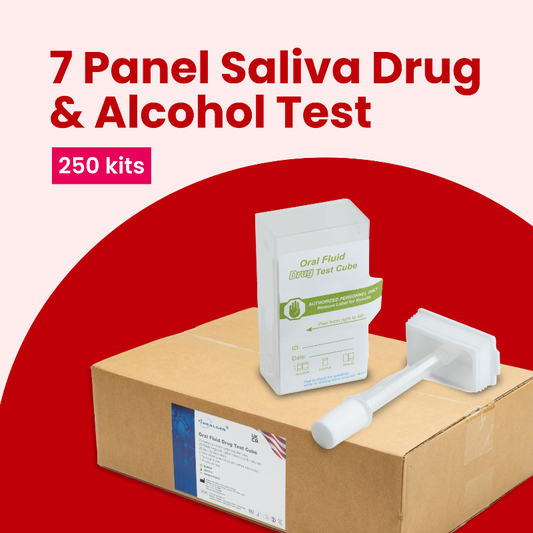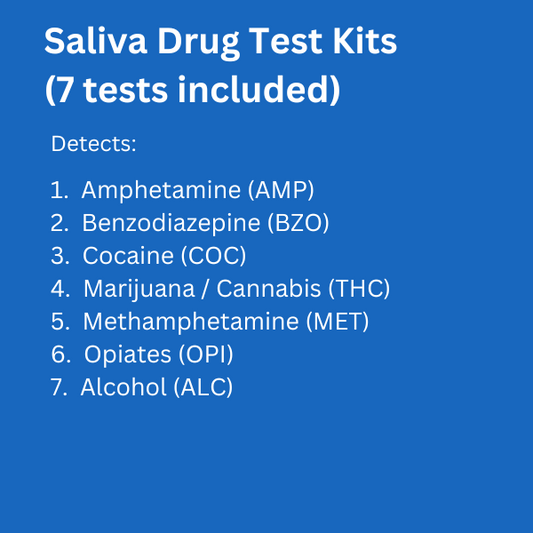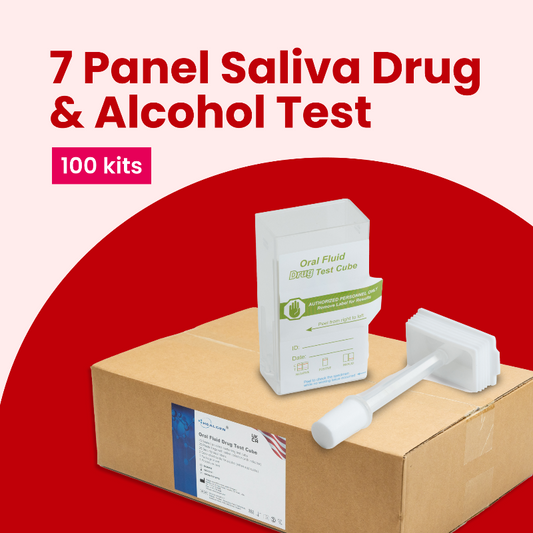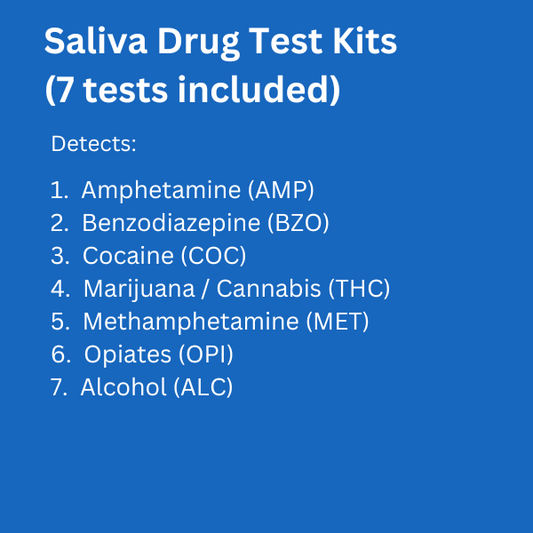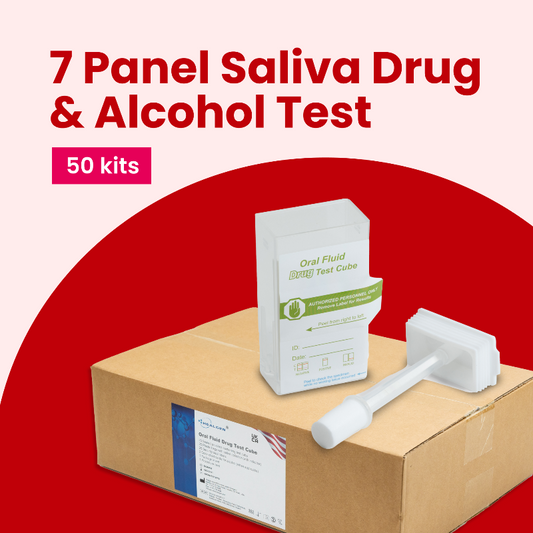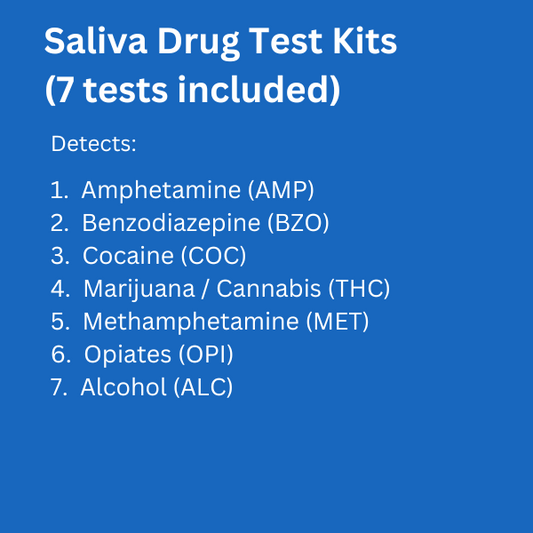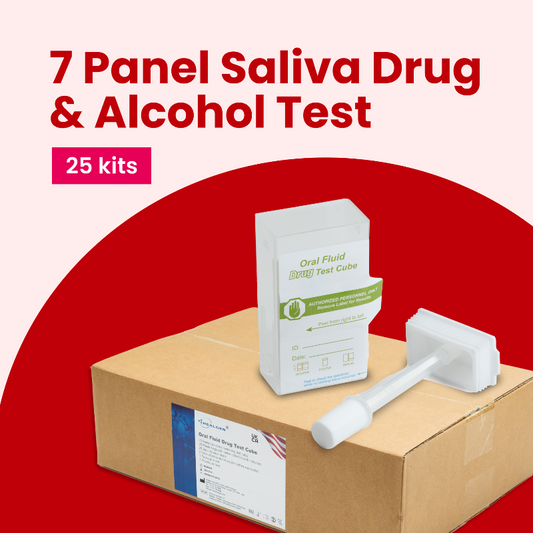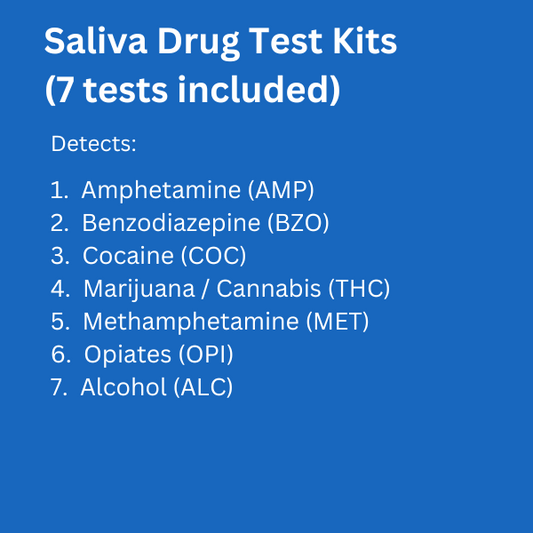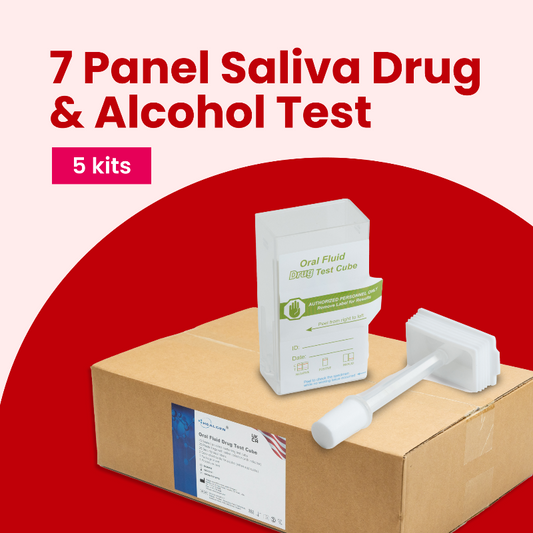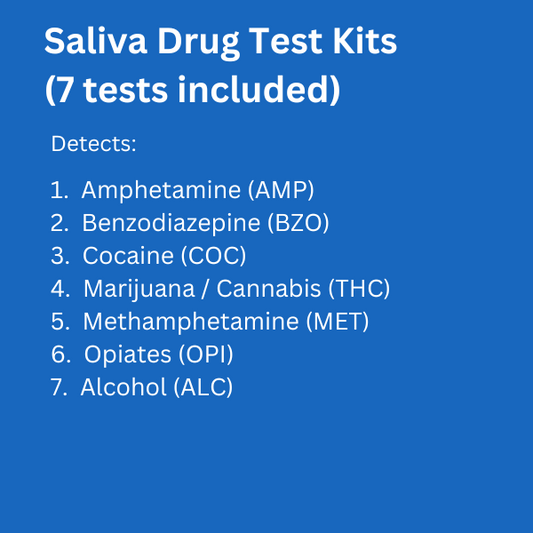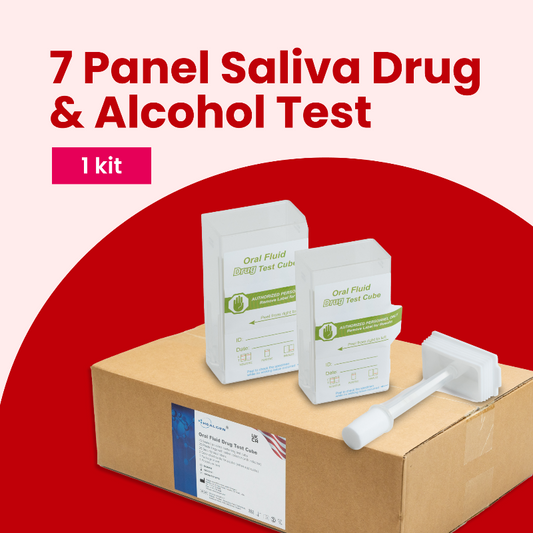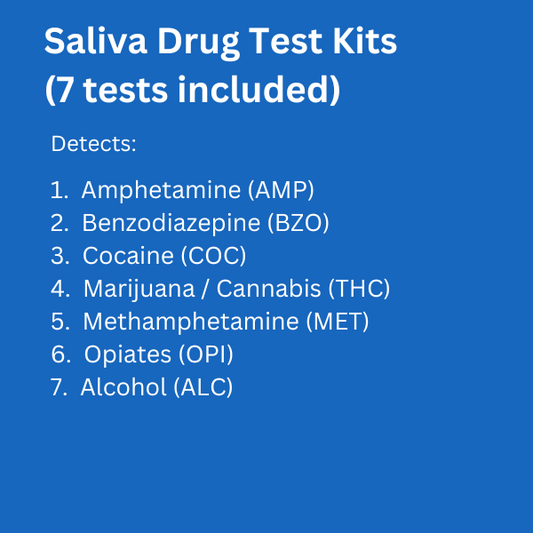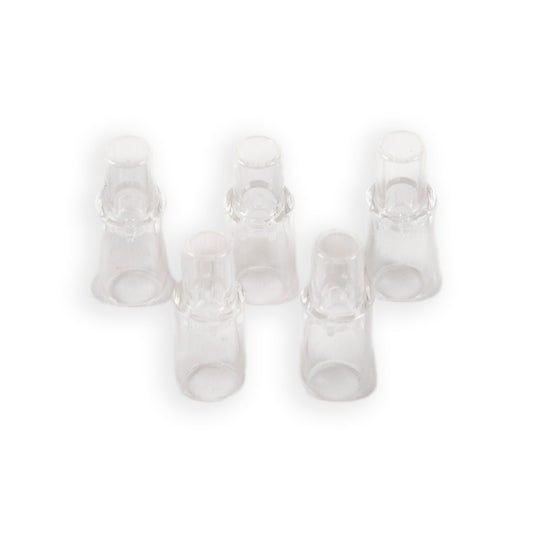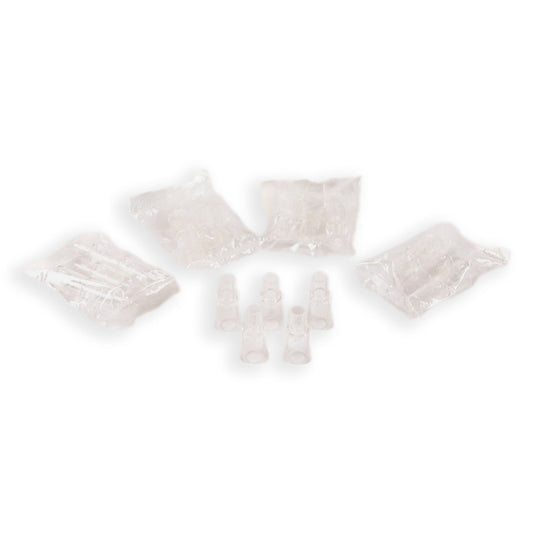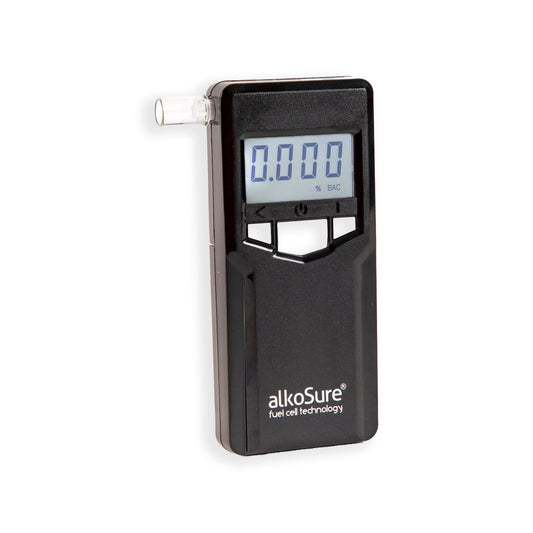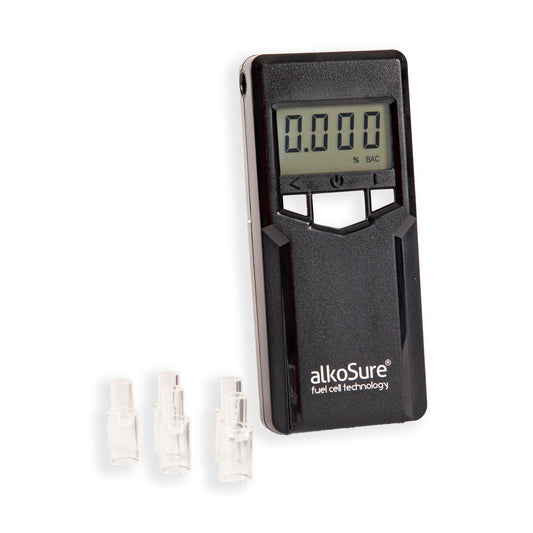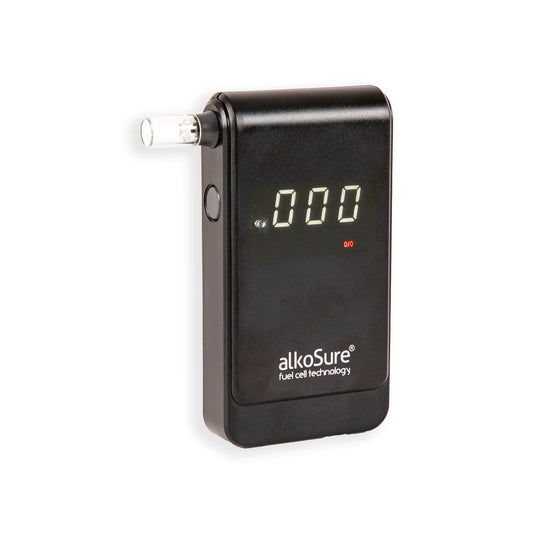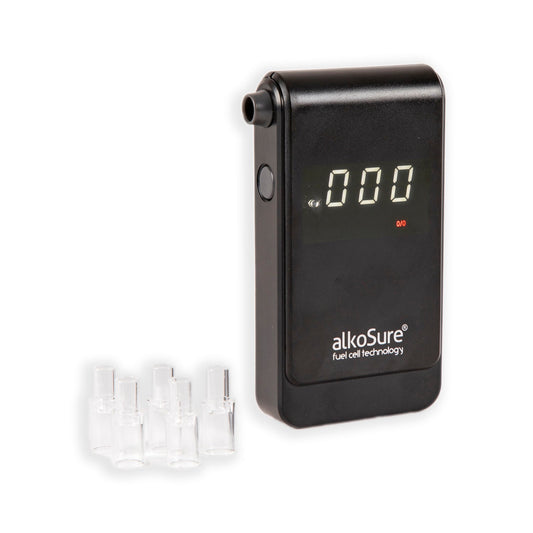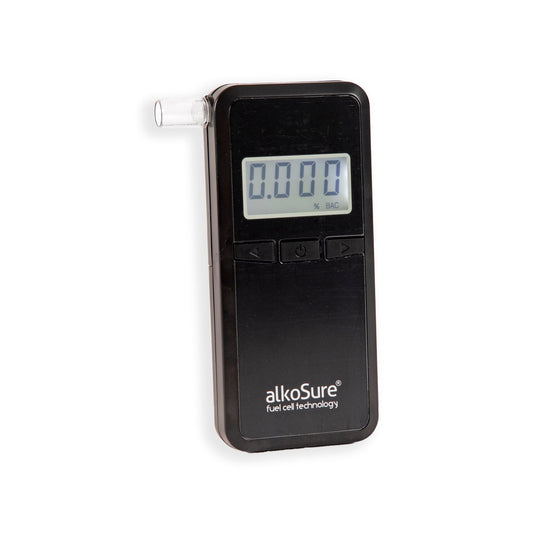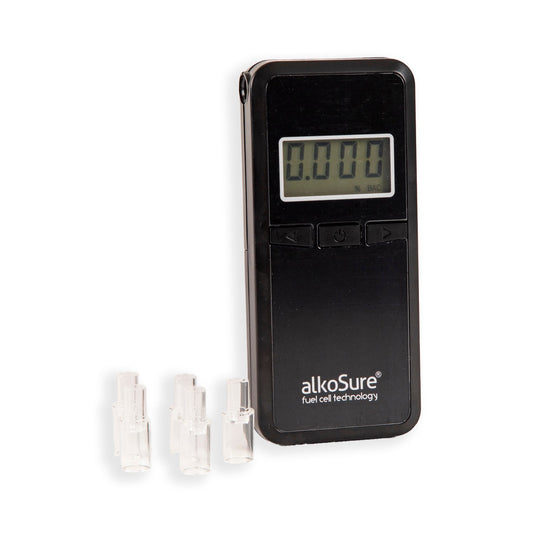-
7 Panel Drug + Alcohol Saliva Drug Test (250 Tests)
Regular price From £6.99Regular priceUnit price / per£7.99Sale price From £6.99Sale -
7 Panel Drug + Alcohol Saliva Drug Test (100 Tests)
Regular price From £6.99Regular priceUnit price / per£7.99Sale price From £6.99Sale -
7 Panel Drug + Alcohol Saliva Drug Test (50 Tests)
Regular price From £6.99Regular priceUnit price / per£7.99Sale price From £6.99Sale -
7 Panel Drug + Alcohol Saliva Drug Test (25 Tests)
Regular price From £6.99Regular priceUnit price / per£7.99Sale price From £6.99Sale -
7 Panel Drug + Alcohol Saliva Drug Test (5 Tests)
Regular price From £6.99Regular priceUnit price / per£7.99Sale price From £6.99Sale -
7 Panel Drug + Alcohol Saliva Drug Test (1 Test)
Regular price From £6.99Regular priceUnit price / per£7.99Sale price From £6.99Sale -
Mouth Pieces for the Alkosure range of Breathalysers
Regular price From £2.99Regular priceUnit price / per -
AlkoSure F16 Breathalyser with Fuel Cell Technology
Regular price £69.99Regular priceUnit price / per -
AlkoSure F22 Breathalyser with Fuel Cell Technology
Regular price £79.99Regular priceUnit price / per -
AlkoSure F6000 Breathalyser with Fuel Cell Technology
Regular price £69.99Regular priceUnit price / per
Collection: Workplace Alcohol and Drug Testing Kits..
Drug Testing Kits UK stocks an extensive selection of workplace alcohol and drug testing solutions, including cups, dipsticks, and cassettes. Whether you’re after reliable drug testing kits or alcohol testing options, our rapid kits deliver an efficient answer. Priced competitively and backed by 99% accuracy, they’re designed for real-world use.
How to Use Workplace Alcohol and Drug Testing Kits
Using workplace alcohol and drug testing kits is a straightforward process, but following the instructions carefully is important to ensure accurate results. Here are some general steps to guide you:
Testing for drugs and alcohol in the workplace is simple when you stick to the steps. For reliable readings, pay close attention to the instructions. Follow this outline:
Review the Instructions: Start by reading the manufacturer’s guidelines from cover to cover. You’ll find the correct procedure and any safety notes you must heed.
Set Up the Testing Space: Use a clean, well-lit place to run the test. Lay out each kit element so you can grab it quickly and smoothly.
Gather the Sample: Depending on the kit, you’ll need a urine, saliva, or breath sample. Follow the sample-collection directions for the type of test you’re conducting.
Run the Test: For urine checks, immerse the strip or cassette into the sample, holding it for the time the directions state. If you're using saliva, gently swab the inner cheek for the recommended duration. For a breath test, the individual breathes steadily into the mouthpiece.
Wait for the Reading: Check the clock and hold off until the time listed in the manual, which may be a couple of minutes or as long as 15.
Read the Results: Look for the lines or symbols—whatever the test shows. Check the guide to see what the marks actually mean.
Throw Away the Kit: Once the results are written down, discard the test kit and other used materials according to the guide.
Can any drug test catch alcohol?
Not every drug test available picks up alcohol. However, at Drug Testing Kits UK, we craft our drug and alcohol testing kits with care, focusing on user-friendly design while delivering dependable results. Each kit goes through strict quality checks and complies with industry specs, so you can trust the findings we provide. Our kits boast an accuracy of 99% and come in multiple formats—cups, dipsticks, cassettes—making them versatile enough for any screening environment.
What decides how long drugs stick around in the body?
Knowing how long drugs stick around is key for interpreting test results. Several factors affect this timeline, which can help you choose the right testing method and gauge the detection window. Here are the main influences:
Dose and Usage Habits: How much and how often a substance is used plays a major role in how long it stays. Someone who uses a drug occasionally will generally test clean sooner than someone who uses it on a regular basis.
Body Composition and Activity Level: Individual body mass, how much someone exercises, and how well they're hydrated can also affect detection. People with higher body fat may retain substances longer, since drugs can build up in fat tissue.
Drug Type: Different substances have distinct half-lives, influencing how long they linger in the body. For instance, many benzodiazepines are eliminated more slowly than Valium.
Drug Tolerance: Frequent use can lead the body to process a substance more efficiently, meaning a user might test negative sooner than an occasional user.
Co-consumption: Consuming alcohol or other drugs at the same time can interfere with elimination, sometimes lengthening the detection window.
Other Considerations: Factors such as age, ethnicity, sex, and pre-existing health issues can also alter how quickly drugs are cleared from the body.
What Is Random Roadside Drug Testing?
Random roadside drug testing means officers stop motorists at any time to check for drug impairment. The main points are:
Introduction: The UK launched this practice in 2005 to improve overall road safety.
Testing Equipment: Officers carry a portable device known as a dialyser, which analyses a driver’s saliva on the spot.
Detected Substances: The analyser can identify a range of drugs, including cocaine, ecstasy, methadone, ketamine, benzodiazepines, morphine and cannabis.
Next Steps: A positive result leads the driver to a police station, where more accurate blood or urine sampling confirms the initial finding.
What’s the Most Common Drug and Alcohol Test?
The urine test for drugs remains the go-to for employers. It’s simple to administer, delivers results quickly, and is cost-effective while covering a lot of substances. For alcohol, breathalyzers do the job; they give immediate feedback on a person’s blood alcohol content (BAC).
Can any Drug Test Detect Alcohol?
Not every testing kit is set up to pick up alcohol. At Drug Testing Kits UK, our alcohol tests and drug tests are built for pinpoint accuracy across the board. Every kit is designed with user-friendliness and accuracy in mind, passing strict quality checks and industry standards. With a proven accuracy of 99 percent, our range—including test cups, dipsticks, and cassettes—caters to needs in workplaces, homes, and clinics alike.
What Factors Determine How Long Drugs Stay in a Person's Body?
The duration drugs remain detectable in the body can vary greatly depending on several key factors. These include the frequency and dosage of drug use, where occasional users may have shorter detection windows than regular users. The individual's body mass, physical activity levels, and hydration also play significant roles, as drugs can accumulate in fatty tissues and linger longer in those with higher body fat. The type of drug consumed affects this as well, with some substances having longer half-lives than others. Additional factors like drug tolerance, co-consumption of other substances, age, ethnicity, gender, and pre-existing medical conditions can influence how quickly drugs are metabolized and eliminated from the body. Understanding these factors is crucial for choosing the appropriate drug test and accurately interpreting its results.
How Soon After Consumption Can Workplace Alcohol and Drug Testing Kits Detect Substance Use?
How long drugs hang around in your body is really a matter of a few main players. First off, how often and how much you use a substance makes a big difference; a weekend drinker will clear the same substance faster than a daily user. Your own body size and makeup matter, too. Leaner bodies usually flush things out quicker, while those with a higher percentage of body fat might store certain drugs in fatty tissue and test positive long after use. The drug itself is a big variable; some compounds break down in hours, while others can linger for days. Tolerance built from regular use can speed up some metabolic pathways, but mixing drugs, your age, ethnic background, gender, and any existing health issues can all tilt the clock in different directions. When it comes to picking a test and reading the results, knowing all of this gives a clearer, more accurate picture.
Are Workplace Alcohol and Drug Testing Kits Legally Compliant for Use in Employee Screenings?
Yes, workplace alcohol and drug testing kits are typically designed to align with legal requirements for employee screenings, following the guidelines established by regulatory agencies in most jurisdictions. Nevertheless, the legal compliance of these kits hinges on the specific laws and regulations of the locality in which they are used, which can differ by country, state, or regional authority. Employers are strongly encouraged to seek guidance from legal advisors to verify that their testing policies and practices are consistent with relevant statutes, including statutes on privacy, informed consent, and any requirements regarding the specific tests that may be administered. It is equally critical that employers choose testing kits that are either FDA-approved or certified by appropriate health and safety authorities, as this ensures the accuracy of the tests and the legal defensibility of the resulting data.
How Accurate Are Our Drug & Alcohol Testing Kits?
Our saliva drug testing kits provide high accuracy, proven by a thorough validation study. Conducted by three independent laboratories, the study compared our saliva tests to known reference samples and returned the following results:
-
Our kits confirmed positive cocaine results with a 92.5% accuracy rate, indicating that when cocaine is detected, there is a 92.5% chance the finding is accurate.
- Furthermore, the kits reached 100% accuracy in identifying negative results, meaning that a negative reading for cocaine is always correct.
Beyond these figures, our tests remain reliable across a range of conditions—varying hydration levels and the presence of other substances do not compromise the results. Ordinary interfering substances have no impact on the readings.
In summary, our drug tests are robust and trustworthy, making them a reliable tool for detecting cocaine use.


